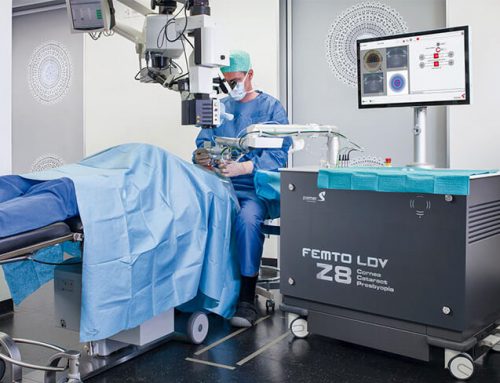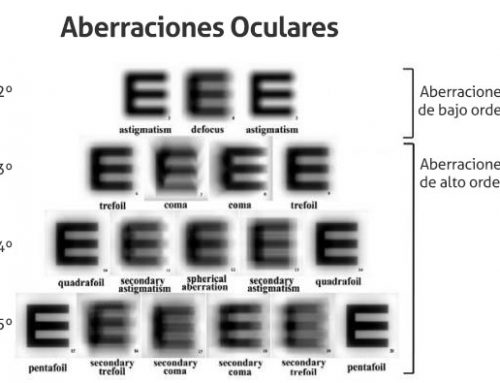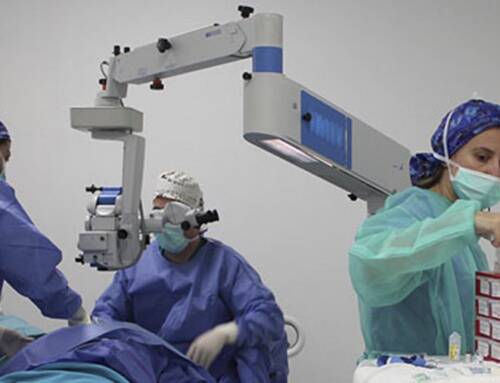Double vision or diplopia makes people see two images of the same object. The images can be superimposed horizontally, vertically or diagonally, and can affect one or both eyes. If you suffer from this problem, do not hesitate to contact your ophthalmologist. In Malaga, Marbella and Granada we can help you at the Vistalaser clinics.
Naturally, double vision makes you unable to perform a multitude of activities. It is an unpleasant situation and when the possible causes are discussed, the patient may become frightened. It is possible that diplopia may occur persistently or be a temporary event due to visual stress or anxiety.
Whether you suffer from it occasionally or continuously, we recommend that you see an ophthalmologist. This is the doctor who specialises in eye health and will help you to rule out any other problem or pathology.
In the ophthalmologist’s surgery we will carry out a complete examination. This will include an assessment of eye mobility. That is to say, whether the eyes move in a coordinated manner. We carry out a series of measurements and all the complementary tests that are necessary to rule out any problem or pathology.
Causes of double vision
When double vision affects only one eye, the cause is usually an internal or surface problem. It could be a problem with the retina, cataract, an irregular cornea, dry eye or simply a poorly graded eye. We know that higher order aberrations can cause double vision. For this reason we recommend that you visit an ophthalmology clinic to have your vision evaluated, as we have ophthalmologists and optometrists who have the most advanced technology.
If it affects both eyes, one of them can be covered to stop double vision. As both eyes do not look at the same place at the same time, the brain receives two different images that it cannot fuse together. In these cases the cause is usually related to some problem with eye movement. More specifically with a neurological problem like a paralysis of the oculomotor nerves that produces strabismus.
These are just the usual causes, but the truth is that there is a whole range of possible causes. A patient could have double or blurred vision as a result of thyroid diseases, pathologies such as Multiple Sclerosis, due to an intracranial tumour, some orbital trauma, as a consequence of a heart attack, or muscular diseases such as Myasthenia Gravis, among others.
Double vision treatment
To determine the most appropriate treatment the ophthalmologist must initially diagnose the cause of the double vision.
Treatment of double monocular vision
In our experience, most cases of diplopia are monocular and are linked to poor glasses prescription. In these cases the solution is to adjust the optical correction or evaluate a refractive surgery in order to not depend of glasses or contact lenses.
It is also common for keratoconus to cause double vision in one or both eyes. This disease progressively deforms the patient’s cornea. After an exploration, the ophthalmologist will indicate the stage of the disease and the most appropriate treatment to try to stop its development and recover normal vision.
In older patients, especially those over 60, double vision may be due to a cataract. For these cases the treatment is cataract surgery which replaces the lens with an intraocular lens. At the Vistalaser clinics we are specialists in this type of treatment and we use the most advanced technology: femtosecond laser and trifocal intraocular lens implants.
Treatment of double binocular vision
Double binocular vision is also less common and usually occurs only in adults who suffer from strabismus. Evidently children also suffer from strabismus, but at an early age the brain simply cancels out the vision in one eye to avoid double vision, this causes another problem called lazy eye. The problem with an adult brain is that it has already learned to receive images from both eyes and cannot ignore this, so if you suffer from sudden strabismus you will have double vision and you will have to go to the emergency room as soon as possible.
In these cases, the origin of the problem could be a neurological problem, a trauma, a cerebral infarct, etc. It may be that after treating the basic disease it may be necessary to relocate the eyes. For this purpose the ophthalmologist can resort to various surgical procedures that allow the ocular muscles to be touched up in order to weaken, strengthen or reposition them. In other cases, Botox injections can be used to paralyse certain muscles or other solutions to minimise the symptoms.








Leave A Comment